
by Jenna | Jun 18, 2014 | Guest Posts
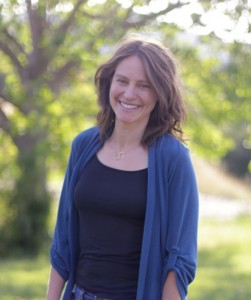 Note from Jenna: This guest post is from one of the many talented writers in my online writing community program, Rebecca Brams. Rebecca knows first-hand about the many challenges of writing while being a mom to two young boys, but it doesn’t stop her from getting her writing done. She shares here some brilliant-yet-simple techniques she uses to jumpstart her writing on a regular basis, even as a busy parent.
Note from Jenna: This guest post is from one of the many talented writers in my online writing community program, Rebecca Brams. Rebecca knows first-hand about the many challenges of writing while being a mom to two young boys, but it doesn’t stop her from getting her writing done. She shares here some brilliant-yet-simple techniques she uses to jumpstart her writing on a regular basis, even as a busy parent.
As you read these tips, look for ideas you can use for yourself — and let us know in the comments which one you’ll be putting into action.
My personal favorite is #5. :)
11 Tips: How I Get (& Keep) Myself Writing
by Rebecca Brams
We all have days when sitting down to write sounds about as fun as scrubbing the toilet. When the Muse is ignoring my pleas and Resistance is strong as steel, I turn to these tips and tricks to get words on the page.
1. Write longhand and keep my hand moving
It’s classic advice for a reason. When I’m stuck, I break out the old-fashioned tools: paper and pen. I start by describing what’s around me: the room I’m in, the clothes I’m wearing, the way the clouds are moving out my window. I add in some other senses – the smell of the old coffee in my mug, the sound of the washing machine whirring – and presto, I’ve tricked myself into writing!
2. Use a timer
Before joining the writing community with Jenna, I had mainly done timed writing when responding to prompts in writing groups, but now setting a timer is a critical part of my daily writing habit. I love using Freedom, an Internet-blocking software which temporarily disables my computer’s access to the Internet and blocks new emails from coming in. It keeps me away from online distractions while also giving me a clear “time’s up!” message right on my laptop screen.
3. Write before I’m awake
I’m not a morning person, but there’s something about 6:30 a.m. writing that allows me to sneak past that critical “editor” voice that can make each word a struggle. At night before I go to sleep, I set the scene: pen and notebook on the kitchen counter, splayed open to a fresh page. If my husband’s away, I prop my laptop against the wall by my bed, where it charges silently, waiting for morning when I pull it into bed for the indulgence of writing while still snug under the covers.
4. Bribe myself
On days when Resistance is mighty, I give myself a dark chocolate peanut butter cup, but only allow myself to eat it once I’m at my desk, I’ve set my timer, and the document is open. Some of my other favorite rewards are: a walk around the block, People magazine online, or a few minutes rocking in my hammock, thinking about how glad I am that the writing is done.
5. Suffer the consequences
Here’s the idea I keep in my back pocket for days when I feel powerless to stop avoiding my writing. I tell my husband, “Either I write today, or I have to spend those 15 minutes cleaning the toilet.” I’m pretty sure I know how that one will turn out, and it won’t be with a sparkling toilet.
6. Write in an unusual place
I write in my car, parked on a street where I’ve never before driven. I write in crowded cafes. I write in the yard under the Japanese maple. I write in the bathtub. But I do observe the cardinal rule: no laptops hovering over water.
7. Set a teeny tiny goal
10 minutes. 5 minutes. 2.3 minutes. When the timer goes off, I ask myself, “Can I keep going?” If the answer is yes, I set it for another tiny goal. I think in bite-sized pieces.
8. Write a numbered list
It could be a list of “Reasons I Can’t Write Today.” Or something supremely creative like “Things I Remember.” Eventually my timer will go off, or I’ll veer in some new, unexpected direction, perhaps even stumbling upon what I didn’t realize I was meaning to write about all along.
9. Use the phrase “What I really want to say is…”
Courtesy of writing teacher Laurie Wagner, this powerhouse phrase can make a piece of writing fizz and pop like Alka-Seltzer dropped into water.
10. Release the need to know where I’m headed
Sometimes I’m steaming along, words pouring out as fast as my fingers can type, and sometimes I hit dead stop, no idea of how to move forward. That’s when I remind myself that all I need to do is inch the story along. It doesn’t matter which current I tap into; I just need to move into the flow. Once I’m in motion, I can always change course.
11. Change my mindset
Instead of saying “I have to write now,” I tell myself: “Now I get to write.” What felt like suffering a moment ago might turn out to be my favorite part of the day.
 Rebecca Brams is a novelist, blogger, grant writer and mama to two young boys in Berkeley, California. You can find Rebecca online at https://rebeccabrams.com.
Rebecca Brams is a novelist, blogger, grant writer and mama to two young boys in Berkeley, California. You can find Rebecca online at https://rebeccabrams.com.
In her copious spare time, she likes Zumba, nature, and hot tubs.

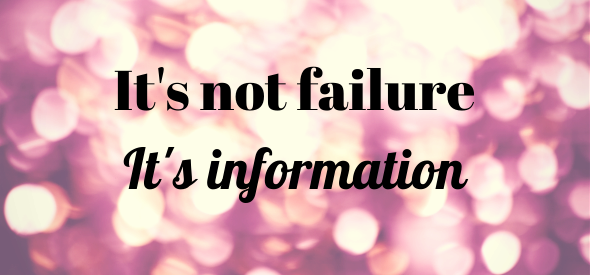
by Jenna | May 14, 2014 | Guest Posts
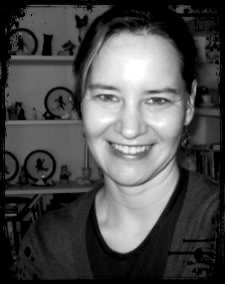 A note from Jenna: This guest post from the highly talented coach and writer, Jill Winski — whom I’m proud to have serving as a coach for my writing community — offers insights for writers who struggle to finish their writing projects.
A note from Jenna: This guest post from the highly talented coach and writer, Jill Winski — whom I’m proud to have serving as a coach for my writing community — offers insights for writers who struggle to finish their writing projects.
Read on to find out about what Jill has learned from her own process and from participating in the writing community.
Learning to finish
by Jill Winski
For more than two and a half years, I’ve been a participant in Jenna’s writing community, and I’ve coached a small group in the writing community for almost that long.
In some ways, I now divide my life into the pre-writing community and during-writing community eras. That’s because, in the writing community, I’ve learned how to finish a novel draft. Before the writing community, I knew how to make it about two-thirds of the way through.
And then — I’d stop.
There’s this quote from Neil Gaiman that one of my group members shared recently:
“Whatever it takes to finish things, finish. You will learn more from a glorious failure than you ever will from something you never finished.”
I don’t think this is always true for everything — some things are simply not worth finishing — but there is certainly a lot of truth there for me.
On finishing short stories
When I was in grad school, I learned to write — and finish — a short story. Because I carried my short stories to completion — even if they sucked — I learned a certain amount about the movement of a short story, about the promises set up in it, and about fulfilling those promises to the reader by the end. I wrote a good amount of short stories, and even had some of them published. I still have tons to learn about the art of short story writing, but, in finishing, I was able to let my own process truly sink in, let the story itself sink into my bones, and learn what could be cut away and what needed to emerge in the next draft.
On finishing novels
With novels, I never made it this far. When I joined the writing community, I had two unfinished novel drafts. I had stopped writing them because I got lost.
I started writing the second novel because I believed I was bored with the first.
And the same thing happened.
I got lost.
I got stuck.
And I made the fact that I was lost and stuck mean that I was not a good writer. I didn’t decide this one day; it was sort of a “happening” over time, after grad school ended and I was no longer in as much contact with fellow writers.
I forgot — or maybe I never really understood — that all writers struggled. The longer I let my unfinished novels sit, the longer the drafts collected dust bunnies and cat hair in a pile next to my desk, the more sure I became that I had failed.
It’s not failure, it’s information
But one of my favorite mantras of the past couple of years is: “It’s not failure, it’s information”.
And that was where the writing community came in for me. As part of logging in our daily progress, we answer a series of questions designed to bring awareness to our writing habit and process.
Awareness. For twenty years it’s been one of the most important themes in my life, but guess what? I never thought to apply it to my writing process.
I believed, for years, that writing just meant sitting down and pushing through even when it was hard.
And that worked. Until I got really, really stuck. And then it didn’t work anymore.
A novel is a vast thing, an unwieldy thing, a thorny thing. The opportunities to get lost, to go off the chosen path, are plentiful.
The more I logged in my daily progress in the writing community and answered the questions, the more I became aware that my problem was this: I was afraid of being wrong. I was afraid of being mediocre. I was terrified of writing a shitty first draft. I just hadn’t known it before.
I actually believed I was bored
I was so afraid to know I was afraid that I’d actually believed I was bored.
It was one thing to write a shitty first draft of a short story; short stories were, by definition, short, and I could take a deep breath, jump in, and hope to come out on the other side in a couple of weeks.
But to write an entire draft of a novel and be, well, bad — for it to be far, far less than the vision of greatness I held in my head — seemed like too much.
Except I realized that’s exactly what I needed to do. And I only realized it by pausing enough to notice the thoughts I was having about my writing, about myself as a writer, and question them.
At the end of my second session in the writing community, I finished my novel draft.
And a few months later, I went on to finish another.
I’ve seen this happen for the group members I coach in the writing community, too. It’s incredibly exciting to see a fellow writer who’s been on a long journey reach a point of completion. And one of the biggest things I’ve learned while coaching in the writing community is that most of us have more days that feel like struggle than days where we feel “in the flow”.
And yet we’re all learning to finish, anyway.
My completed drafts do not match the vision I held in my head. But only in finishing did I actually see what was there, and only in finishing could I build the foundation for a better draft. I’m not saying we must always finish — but if we truly want to, we owe it to ourselves to give ourselves that gift.

Jill Winski is a certified life coach who offers her clients support for the vulnerability that comes with creativity. She continues her adventures in the often-rocky terrain of fiction and nonfiction, and you can find her online at www.jillwinski.com.


by Jenna | Oct 23, 2013 | Guest Posts
 Many people have unfinished writing projects that linger for years, but it's never too late to finish your book. And the time to get restarted might just be now.
Many people have unfinished writing projects that linger for years, but it's never too late to finish your book. And the time to get restarted might just be now.
I reached out to Terri Fedonczak, a long time writing community member, to talk to us about her experience finishing a long-time writing project after 15 years of dreaming and what that's been like for her. Terri has been such a great participant and gotten so much out of the writing community that I recently invited her to join us as a coach for one of our coaching groups on the site.
Read on to find out about Terri's extremely inspiring project for parents (I've seen a preview and it's terrific!) and how she conquered her writer's isolation and resistance with the help of the writing community and saw her book all the way through to done.

Terri, welcome and thanks for being here. First, let's talk about your accomplishment -- finishing your parenting book! What was that like for you?
Thanks for having me, Jenna! When I finished my first draft, it was the culmination of a dream I have had for fifteen years. I remember telling my niece about how I wanted to write a parenting book and discussing topics with her; this was in 1996. When I actually finished my first draft, I thought there would be angels singing . . . not so much! What I didn’t realize was the time involved in the editing process -- there's always more!
How long had you been working on the book prior to joining the writing community?
I spent fifteen years working on the first draft, but I had been jotting down ideas in my journal for ten years before that. In the ensuing years, I wrote little snippets in journals and spoke ideas into my portable tape recorder.
You actually finished a rough draft of the book after you first joined the writing community in 2011, is that right?
Yes, my first session of the writing community was spent culling all the bits and recordings into a little 60 page book.
Then what happened that led you to completing this new draft?
I interviewed three different editors, and picked Darla Bruno. She read through my first draft and suggested that the book wanted to be more. I hadn’t put my life into the book or any coaching tools. So, I took the challenge and spent the next year or so rewriting it. The completed book is 214 pages, and it’s everything I envisioned back in 1996!
What can you tell us about yourself and about the focus of the book?
I'm the mother of four daughters: three biological and one bonus girl that came to live with us in 2010. I'm a breast cancer survivor; I mention it, because it changed the course of my life. I left my fifteen-year commercial real estate practice to become a Certified Martha Beck Life Coach, writer, and speaker. Breast cancer changed my priorities completely; the threat of losing my life awakened me to the importance of living my right life.
The title of the book is Field Guide to Plugged-in Parenting, Even if You Were Raised by Wolves. It answers the question of how to be a good parent if you have no role models -- you know you don't want to replay your childhood, but you are lost as to an alternative. It's a compilation of all the parenting and coaching tools I have used successfully with my kids, with some humor thrown in to lighten the load. I walk you through a process to create your own parenting plan, so that your kids will be starting with an infinitely better foundation, thereby ending the wolf-baby cycle forever. Wolf babies is a term I coined to describe those of us who were raised by wolves and suffer from lack-based thinking as a result.
How did you find out about the writing community and what inspired you to join us?
Jill Winski was in my life coach training class, and she put out an ad for the writing community on our Facebook page. I saw it and knew that I needed help with making my book a reality. It felt like divine guidance . . . and it was.
What have you learned about your writing process from participating in the writing community?
I’ve learned that there is no magic pill, place, or instrument that delivers a quality product. All it takes is complete honesty, utter vulnerability, and a daily practice of showing up to the page . . . no big whoop!
What were the biggest challenges you faced before joining the writing community? Have they changed? What's different now about your writing habit?
I think the biggest challenge I faced was the feeling that I was all alone in my desire to write a book. I knew I had an important message, I just didn’t understand how to deliver it. With the writing community for support and accountability, my biggest challenge now is the acceptance that I am a writer. It’s not a fluke or a pipe-dream; I wrote a book, ipso facto, I’m a writer! The biggest difference in my writing habit is that I’m no longer plagued with resistance, so I write every day. Some days it’s just 20 minutes of morning pages in my journal, and some days it’s three hours working on a blog post or outline for the new book . . . but I write every day.
What advice do you have for other writers?
First of all, join the writing community! It’s the best way to incorporate writing into your daily life. Secondly, write every day, even if it’s just 15 minutes in your journal. While your logical mind is busy watching your hand move across the paper, the most delightful tidbits will rise up from your creative mind. When one pops up that excites you, expand it . . . like you're telling your favorite friend a story. You don’t need anything other than a pen, paper, and a bit of quiet time to awaken your creative side . . . and then you’re off to the races!
What’s next for you and your writing?
I’m developing a program that I will be delivering to incoming 9th grade girls called, “Field Guide to the Wilds of High School.” I developed the program while on safari in Africa (jeesh, that sounds so hoity-toity), and it’s based on the power of the pride. I watched the way the lionesses took care of the pride, and how their raw feminine power ran their world. It reminded me of what’s missing in Girl World. So I’m taking the program into schools this summer, and then I will turn the results into a book for teens and a corresponding book for parents on how to survive high school.
Is there anything else you’d like to tell us?
I believe that everyone has a creative person living within them, and that creative energy can turn drudgery into joy. Find some way to nurture your creative side, and your life will blossom in endless and unexpected ways…or at least that’s what happened to me.
About Terri
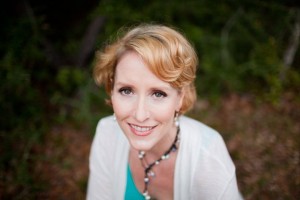 Terri Fedonczak has 22 years of parenting experience and is a certified life coach, specializing in parent and teen coaching. After 16 years as a commercial real estate agent, a bout with breast cancer transformed Terri’s life in 2010, making her realize that time with her four girls and patient husband was a much better deal than money and status. It was time to put her mission into action. She left sales and embarked on a journey of spreading the message of girl power for good. When Terri is not writing books, speaking, coaching, or blogging, you can find her paddle boarding on the sparkling waters of Boggy Bayou, knitting to the consternation of her children, who are buried in scarves and hats, or dancing in her kitchen to Motown.
Terri Fedonczak has 22 years of parenting experience and is a certified life coach, specializing in parent and teen coaching. After 16 years as a commercial real estate agent, a bout with breast cancer transformed Terri’s life in 2010, making her realize that time with her four girls and patient husband was a much better deal than money and status. It was time to put her mission into action. She left sales and embarked on a journey of spreading the message of girl power for good. When Terri is not writing books, speaking, coaching, or blogging, you can find her paddle boarding on the sparkling waters of Boggy Bayou, knitting to the consternation of her children, who are buried in scarves and hats, or dancing in her kitchen to Motown.
You can follow Terri online at https://www.girlpowerforgood.com/ and on Facebook here. Look for Terri's Field Guide to be published in January 2014!

by Jenna | Aug 7, 2013 | Guest Posts
Writers who tend to join my writing community — and get the most out of it — often have both a deep call to write (whether they’re doing it consistently or not) and a specific project they want to work on, perhaps one half-completed, languishing on a shelf for a couple of years. And when they find out about the writing community, they’re eager to move past the dreaming or stuck stage into action.
This is the story of a man who has done just that.
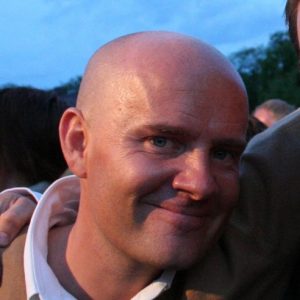 When he joined the writing community all the way from Sweden, Rikard Bergquist had been working on his novel intermittently, struggling to find enough time to write and to move past the outlining and preparation stage into writing actual New Words. And he had a little two-year-old daughter at the time too! (She’s three now.)
When he joined the writing community all the way from Sweden, Rikard Bergquist had been working on his novel intermittently, struggling to find enough time to write and to move past the outlining and preparation stage into writing actual New Words. And he had a little two-year-old daughter at the time too! (She’s three now.)
After being in the writing community for a session or two, continuing to write intermittently, and listening to me (harp on about :) ) advocate for early morning writing and small writing sessions as a powerful way to jump-start a writing habit, one of our other members “threw down the gauntlet” and challenged him to try writing for 5 minutes every day and logging in every day on the site to report about how it went for him. He took her up on the challenge. It changed his life.
In less than four months, after building from 5 minutes a day to a solid writing habit of 60 minutes a day, he knocked out 75,000 words and completed his first draft. He’s still with us in the writing community now, working on revisions. He is one of our most dedicated and consistent members, showing up to write and log in on the site even while traveling — he even met me for coffee in Berkeley here the other day to talk shop while on a trip to the U.S. from Sweden. It was great fun. :)
I asked “Rick” (as we affectionately call him in the writing community) to talk to us today about his experience with finishing his novel, how he got there, and what’s he’s learned about his writing process along the way. You may be surprised to find some ideas and inspiration you can adopt for yourself.
1. Rick, first, welcome and thanks for being here. Let’s start off by having you tell about your recent major milestone — finishing the first draft of your first novel. What was that like for you?
It was one of the most empowering and surprising experiences I’ve had. Empowering because finally this dream of a novel I’ve had for a couple of years was becoming a reality. I escaped the terror of the first draft and actually produced 75,000 words. Instead of laboring and trying to make early parts of the story perfect, writing and rewriting, outlining and rearranging the order of scenes, as well as reading the latest book on craft and thinking I finally got it, I did the work and now have a substantial number of written pages to show for it.
It was surprising because I did it by writing for about an hour every morning during four months — I never thought an hour a day would amount to anything. I surprised myself weekly when I saw what I had accomplished with just an hour every morning. I surrendered to the process, allowing myself to write badly, knowing that it was only the first stage in a big adventure. Overcoming that editor inside of me, who kept telling me it was crap, was a big victory. And my first draft is the result. Now I know that first drafts aren’t supposed to be outstanding perfect novels, they’re just supposed to be written.
2. Can you give us a soundbite about what the story is about and about who you are?
The story is set in the 1570s of Stockholm, Sweden. In a power struggle for the crown our hero supports a new queen for the throne, who turns out to be a murderer, poisoning her competition. When his secret love interest is surprisingly accused and imprisoned for the murder, without any hope of pardon, our hero has to choose between his career or saving her. And what price will he pay for the choice he makes?
I work in the financial industry, for a private equity company, with business development. It’s hands-on management in selected individual companies in a wide range of industries. Writing is for me a creative outlet and a possibility to follow a totally different path.
3. What have you learned about your writing process from participating in the writing community?
Consistent daily work is key to my process. Being consistent means that I stay in touch with my writing, even though I might be working and doing other things during the day. The story evolves and develops in my subconscious, waiting to be served up during the next writing session. Setting goals and being accountable within the writing community, giving and receiving feedback on each others’ processes — in short, knowing that my efforts are noticed by others is a big motivator for me.
Focusing on the process rather than the craft, is a very important difference from other writing groups I’ve participated in. For me, this group is about focusing on getting the writing done, every day. What you write, how you write, and when you write is up to you. But do it every day. The accountability and support of the writing community is key to making that happen.
4. What were the biggest challenges you faced before joining the writing community? Have they changed?
My biggest challenge was finding time to write. I kept telling myself I needed chunks of at least 3-4 hours of undisturbed concentrated time to get anything done. I used to laugh at friends telling me how someone they knew had finished a novel by coming in 15 minutes early to the office and using that time to write. “It just isn’t possible,” I used to say, but now I know better. I kept on trying to find my big chunks of time, getting them here and there. It was a constant struggle. Looking back, I feel like I wasted a lot of time thinking about how to find time to write, but never doing the actual writing, and instead ending up feeling frustrated and lost. I knew I wanted to write, but why didn’t I just do it? I wrestled a lot with that question. With the help of the writing community I established a habit of rising early and writing for an hour every morning. Consistently.
5. When you first joined the writing community in May 2012, what was your writing habit like and how did it evolve? Were there any key moments where you shifted your habit? Was there a particular trigger or did it build over time for you?
At first my writing consisted of sporadic big chunks of time, where I spent the first part of each writing session reconnecting with my story and the latter part coming up with some new tweaks to my outline, synopsis, and characters. I always felt happy and satisfied afterwards, but not continuing to work on it over time always made me question my earlier work when I got back to it. And I was never moving into writing actual words, paragraphs, and chapters of the book, just staying at the outline stage.
There were two key moments for me — One: I followed the advice from you, Jenna, and fellow members of the writing community to adjust my target amount of writing time downward until I found a suitable amount that I could do consistently every day. For me that was five minutes. How amazed and surprised I was of the power of those five minutes. It changed my world — I connected on a deep level with my story and gradually increased the five minutes to sixty minutes per day. At first outlining scenes and then actually writing the first draft.
And this is where my second key moment occurred — Two: I could not get myself writing. I stalled. I reworked. I was stuck. Again following advice from the writing community I gave myself permission to write badly. I told myself “I am writing crap,” and suddenly I was writing about 750 words during that hour every morning. And surprise, it wasn’t all crap.
6. What advice do you have for other writers?
The only way to do it, is to do it. Complete the journey from the first page to the last page. If you can’t do this, it’s game over. Because without the first draft, you have nothing. You need a lot of faith to do it, faith in your unproven ability to write a novel. But give yourself permission to fail, to write crap, to make mistakes, to forget your outline and synopsis and before you know it, you will have your first draft.
7. What’s next for the novel and for your writing?
Right now I am revising the draft. Aiming at having a first rewrite done in a couple of months. There are times when I feel like giving up, but I now know that that’s only part of the writing life. It’s a constant flow of ups and downs, you just have to trust the process and keep putting one foot in front of the other. Finishing this first draft, I will turn it into my second and then my third, or as many as I need to finally hold an amazing novel in my hands.
8. Is there anything else you’d like to tell us?
Have faith, never give up, and know that in the end you’ll succeed. Once you’re in the habit of writing, trust the process to bring you to the finish line. If you feel down and lost during the journey, just tread water and wait for the next creative wave to come. It always does, have faith.
Thanks, Rikard!
You may also be interested in:

by Jenna | Jul 3, 2013 | Guest Posts
One of the struggles writers often face is the fear that comes up around sharing the truth through our work. It might be the truth about what we think or about who we are. Or perhaps it is about actual experiences we've lived, like those we might share in a memoir.
I've talked to so many writers who are afraid of what will happen when they tell their personal stories or write their memoirs. Fears about hurting people we care about, fears of being rejected or disliked for speaking the truth. These fears can become real impediments to seeing the project through to completion -- and sometimes to even starting it at all!
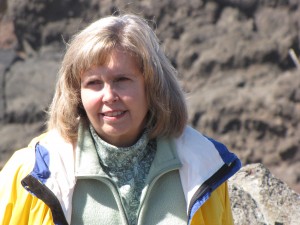 When Mary Montanye joined my writing community on a colleague's recommendation, she was almost done with her memoir -- but not quite. She was feeling stuck around moving to the final completion point with the project -- a tough moment for any writer -- particularly because her memoir would set some deep and personal truths free into the world. We were proud to help her cross that finish line with the support of our writing community.
When Mary Montanye joined my writing community on a colleague's recommendation, she was almost done with her memoir -- but not quite. She was feeling stuck around moving to the final completion point with the project -- a tough moment for any writer -- particularly because her memoir would set some deep and personal truths free into the world. We were proud to help her cross that finish line with the support of our writing community.
I asked Mary to share with us about her experience of completing her memoir and of participating in the writing community.
Perhaps you will be inspired by her story to complete your memoir also. :)
Mary, welcome and thanks for being here.
First, let's talk about your accomplishment — finishing your memoir! You joined the community and finished your memoir in your first session, right? What was that like for you?
I did finish it in my first 4-week session. I was very close to the end when I joined the community. I had been working with a published memoirist/writing coach/teacher for quite a few years and had learned how to write a memoir. She’d helped me dive deep, find the truth and the emotion beneath the “facts” of what had happened. This was good and it made for a meaningful story. However, because I was sharing my truth and some lifelong secrets, I also found it very difficult to push through to the end. Regardless of how often I was told that I didn’t have to “put it out there” if I didn’t want to, I knew the next step after finishing a piece of work was trying to get it published or, if nothing else, to share it with family and friends. This terrified me and, as I closed in on the finish, stopped my writing altogether. Getting over this hump and writing "The End" on the final draft felt great! I have to say this was a highlight of my life.
How long had you been working on the memoir prior to joining the community? In what way did the community help you get over the hump to completing it?
I’d been working on the memoir off and on for five years before joining the community. It provided not only accountability and structure but also a connection to other writers who were putting aside their fears to do what they felt called to do. My writing teacher did provide accountability, but her function was to help me become a better writer. Sometimes when you’re always looking to improve, you never get to the place where you can declare something done, especially when you're afraid to declare a piece done, as I was.
What can you tell us about yourself and about the focus of the memoir?
When my husband and I were living and working in Orange County, CA, I bought -- on the spur of the moment and by myself -- a cabin in a mountain canyon in Colorado. My grandmother had lived in that same canyon when I was a child and I had fond memories of it. That action changed not only my life, but my husband's and my mother's lives. The memoir is based on that. How we all got to the point of living in this beautiful mountain canyon and how it affected our relationships with one another. It is also a story of healing from physical illness and childhood abuse.
How did you find out about the writing community and what inspired you to join us?
I was taking an online class — not sure which one it was now — when one of the other participants mentioned you, Jenna. She loved your newsletters and commented that she was learning a lot from you. I checked out your website, was very impressed, noticed that another writing community session was about to begin, and decided to join. I was feeling stuck in the memoir, but had decided it was time to stop working with my writing coach. I was ready to go out on my own, so to speak, and liked the idea of connecting with a group for accountability. Because I travel a great deal, it was important that the group meet online. First, I signed up for one session to see how I liked it. I am now on my second 4-month round. I liked it a great deal!
What have you learned about your writing process?
I learned that, personally, I need structure and accountability. I’ve always been the type of person who follows through with her commitments. If I declare to the group that I am going to participate in a sprint or be on a coaching or welcome call or write for half hour that day, then it’s likely I’ll do it. The community gives me a place for that kind of accountability. And the community gives me a connection to other writers and coaches who are writers themselves so I don’t feel so alone or unique in my creative struggles. I also discovered that there is an ebb and flow to my creative output. Jenna, her coaches, and the other writers in my small group accept that and honor it. This has normalized for me my way of creating and how my day-to-day life can affect my writing.
What were the biggest challenges you faced before joining? Have they changed? What's different now about your writing habit?
The biggest challenges I faced before joining the writing community were (a) believing that my desire to write was not a valid reason to give it time; and (b) that I was a writer at all! Both these challenges disappeared almost completely in the first month, and that’s pretty amazing given that I’ve held onto those opinions for most of my life. Before joining the community, I would go long periods without working on the memoir. During those periods, I struggled with depression because I wanted to write but was always talking myself out of it. I know it sounds strange, but that’s what was going on with me. Participating in the community gave me a reason to show up to the page and for me, that’s huge. Once I’m actually writing all the excuses and fears fall away for a bit and I know I’m in the right place doing what I need and want to do. These days I rarely miss a day when I’m not writing something and therefore I am also much happier.
What advice do you have for other writers?
My advice to other writers is: Don’t underestimate your desire to write. If you have that desire this is something you are supposed to be doing. I compare it to singing for me. I have absolutely NO desire to sing in a band or a choir or even alone in the shower and that’s a good thing, because I also have absolutely NO talent for it! I believe we are given desire to accompany the talents we have. This isn’t to say that there won’t be times when we won’t want to write. Jenna, her coaches and the other participants of the community have shown me this happens to all of us at one time or another. Still, we return to the work because that’s who we are -- writers.
What’s next for you and your writing?
I’m not sure what’s next for me. I still haven’t decided whether or not I’ll publish the memoir. I think I might publish a small printing through a self-publishing venue and let my friends and families read it. Then, after their input, I’ll decide if I want to try to market it. But I do know I will stay on in the community (I’ve just committed to another four sessions) because they are my people and my life feels fuller when I’m connected to them. And I’ll keep writing … whatever it is I feel to write on any given day.
Is there anything else you’d like to tell us?
I’d like to add that I truly believe that we need to be doing what we feel called to do and to find whatever help we need in order to do it. If we do so, we will be happier people and therefore so will our families, friends and communities. There IS time. Whether or not our work is ever published is not the point. The point is that as writers, we write.
Thank you, Mary!
You may also be interested in:

by Jenna | Apr 17, 2013 | Guest Posts
It’s always thrilling for me to see someone finish a writing project, particularly when I’ve been on the journey with them, from within the trenches of our writing community. We cheer each other on, during the hard days and the easier days, so it feels like a success for all of us when we see someone finish a project and reach their goal.
Of course, there are various milestones for “finishing” too — finishing the outline, finishing the first draft, revising the first draft, working on the second draft, submitting it for publication, etc. etc. In the writing community, we make a point to celebrate all the milestones we can. It’s a must on a long-haul project like a book or screenplay.
In this case, we’re celebrating the success of one of our writers who has finished the first draft of her novel at age 74!

Fredrica Parlett
I was particularly excited when Fredrica Parlett joined the writing community. I know and have worked with her talented daughter, Isabel, and I’ve had the pleasure of meeting Fredrica on occasion here in Berkeley as a result. What excited me about Fredrica’s project was her passion and commitment to her novel — even when the self-doubts would creep in, Fredrica kept up a steady stream of writing with the support of our writing community.
It’s been thrilling to see her return to and build on the first chapter she wrote of her novel four years ago in a class and had then set aside, first writing 20,000 words in her first three sessions in the writing community, and climbing steadily over time, bit by bit, day by day, to the milestone of completing her first draft this March after 18 months of work.
A self-described “writer, searcher, and hyperactive senior,” Fredrica has dreamed of writing a novel for a long time, and with the support of the writing community, has made it a reality. We’ve applauded her and encourged her to keep going, even as she’s said in her dry, witty tone, “I just hope I can finish it before I die.” As someone with long-lived relatives (the women in her family tend to live into their hundreds), we never doubted she would manage it, but we’ve been so happy to see her get there nonetheless.
I thought you might enjoy reading a little bit more about her project and her journey up to this point — as well as what comes next — in her own words:
Fredrica, thanks for being here. Would you first tell us about your writing project — what’s it about?
I am writing a “literary” novel, which follows the lives of two protagonists in 1950’s America: a 16-year-old dyslexic boy, who is misdiagnosed as mentally retarded and psychotic, and the 36-year-old psychoanalyst who tries to save him from a lobotomy.
Tell us about yourself and your dream of writing — how long has this been a dream for you?
As a child I used to lie in bed and make up stories, mainly to do with the Lone Ranger as my father, who misunderstood me, but then I would vindicate myself by rescuing him from horrible bandits or some other dire situation. I wrote short stories from about the age of 9, mostly about talking animals, such as duckbill platypuses. I also wrote poems, also about animals. I’ve always been interested in language and writing clearly. Only after my second child left home for college, did I start thinking about writing a novel. I had one underway, which wasn’t going well, when my house and all its contents burned down in the Oakland Hills Fire in 1991. After the fire I abandoned hopes of writing a novel and devoted myself to studying classical piano.
In 2009, I saw an advertisement for an online writing course given through Stanford University (my alma mater) entitled “Beginning a Novel.” I took the course, the aim of which was to write the first chapter of a novel. That was the beginning of this story, but it lay fallow until I joined the writing community at the suggestion of my daughter, who works with Jenna. I have always been drawn to novels rather than short stories.
How does it feel to have completed the first draft of your novel at age 74?
It feels wonderful. I have had to deal with all kinds of self-doubt and to learn to really prioritize my time, because I am easily pulled into duties and obligations. I had several medical issues last year also — amongst which were foot surgery and an appendicitis, as well as deaths in the family. It seems incredible that I actually wrote 170,000 words telling this story.
What have you learned about your writing process from participating in the writing community?
I was surprised to find that the support of the writing community made all the difference between writing and not writing. Reporting in to the site every evening has been, I think, the most important influence. If a day is slipping away with no writing, I get more determined to do some in order to be able to report progress.
But the other tools of the writing community have helped me as well — reading about others’ difficulties and successes, commenting on them (which is recognizing I have the same difficulties), attending the coaching calls where we have in-depth discussions about all our questions, and certainly participating in the group writing sprints — knowing the others are devoting that same hour to writing is a great boost. Sharing information about books and websites addressing the craft of writing and publishing is invaluable. The fact that the other members are much younger doesn’t seem to be a problem, even if I roll my eyes occasionally at their new age jargon. They are a serious and dedicated group. All these contacts keep me motivated and focused.
What were the biggest challenges you faced before joining the writing community?
I was always subject to the tyranny of the “urgent.” A large house, family, friends — and piano lessons — all of which were rewarding but did not fulfill the dream to write a novel.
You left the writing community for a time and came back to join us again. What did you notice about your writing habit while you were away and what have you noticed since you’ve come back? What difference has participating in the writing community made for you?
When I was not in the writing community, I noticed that the habit of putting everything else first began creeping back in. I missed the pressure of being accountable — stating my writing goal for the next day and trying to honor that. And I’m very prone to discouragement or negative self-statements such as, “I’m much too old to be undertaking this huge endeavor.”
Coming back, I immediately felt the power of the support. My total writing time increased dramatically, almost without my noticing it. (I have always set doable goals and then been surprised when I exceeded them — another trick learned in the writing community.)
What would you say to others who dream of writing a novel in their later years, and what advice do you have for other writers?
If you dream of writing a novel, don’t put it off any longer. The quality of my life has greatly improved from this undertaking, so I have profited, whether it ever is published or not. How has it improved? I look around and within myself for inspiration. I channel my tendency to worry about the world and the scratches on my hardwood floor into worrying about the fate of my dear protagonists, about whom I could talk to you for hours, without you realizing they aren’t alive right now. We all know how hard it is to establish a new habit, especially one that supports our inherent creativity. That is what the writing community can do.
What’s next for the novel and for your writing?
I am now in the revision process, which demands an entirely new set of skills. Fortunately, many of the writing community’s writers are in the revision process also. One of them recommended a book, which is helping me raise the stakes, increase the tension, and make ruthless cuts. I do Julia Cameron’s morning pages every day so that the words keep flowing. I am attempting to rewrite certain scenes in a much more dramatic, intuitive tone. Very exciting. I have the “soft” goal of having the novel ready to send to a publisher or to self-publish on Amazon by the end of this year. I am planning a road trip to Southern California in the Fall to experience directly the places in my novel, even Highland Mental Hospital in San Bernadino, which is still operating. Beyond that, who knows?
Is there anything else you’d like to tell us?
I want to stress that setting a realistic daily goal, even 15 minutes a day, and reporting in every day, so that one really begins to believe one is a writer, is really invaluable.
Thank you, Fredrica!

 Note from Jenna: This guest post is from one of the many talented writers in my online writing community program, Rebecca Brams. Rebecca knows first-hand about the many challenges of writing while being a mom to two young boys, but it doesn’t stop her from getting her writing done. She shares here some brilliant-yet-simple techniques she uses to jumpstart her writing on a regular basis, even as a busy parent.
Note from Jenna: This guest post is from one of the many talented writers in my online writing community program, Rebecca Brams. Rebecca knows first-hand about the many challenges of writing while being a mom to two young boys, but it doesn’t stop her from getting her writing done. She shares here some brilliant-yet-simple techniques she uses to jumpstart her writing on a regular basis, even as a busy parent.![]() Rebecca Brams is a novelist, blogger, grant writer and mama to two young boys in Berkeley, California. You can find Rebecca online at https://rebeccabrams.com.
Rebecca Brams is a novelist, blogger, grant writer and mama to two young boys in Berkeley, California. You can find Rebecca online at https://rebeccabrams.com.![]()


 A note from Jenna: This guest post from the highly talented coach and writer, Jill Winski — whom I’m proud to have serving as a coach for my writing community — offers insights for writers who struggle to finish their writing projects.
A note from Jenna: This guest post from the highly talented coach and writer, Jill Winski — whom I’m proud to have serving as a coach for my writing community — offers insights for writers who struggle to finish their writing projects.
 Many people have unfinished writing projects that linger for years, but it's never too late to finish your book. And the time to get restarted might just be now.
Many people have unfinished writing projects that linger for years, but it's never too late to finish your book. And the time to get restarted might just be now. Terri Fedonczak has 22 years of parenting experience and is a certified life coach, specializing in parent and teen coaching. After 16 years as a commercial real estate agent, a bout with breast cancer transformed Terri’s life in 2010, making her realize that time with her four girls and patient husband was a much better deal than money and status. It was time to put her mission into action. She left sales and embarked on a journey of spreading the message of girl power for good. When Terri is not writing books, speaking, coaching, or blogging, you can find her paddle boarding on the sparkling waters of Boggy Bayou, knitting to the consternation of her children, who are buried in scarves and hats, or dancing in her kitchen to Motown.
Terri Fedonczak has 22 years of parenting experience and is a certified life coach, specializing in parent and teen coaching. After 16 years as a commercial real estate agent, a bout with breast cancer transformed Terri’s life in 2010, making her realize that time with her four girls and patient husband was a much better deal than money and status. It was time to put her mission into action. She left sales and embarked on a journey of spreading the message of girl power for good. When Terri is not writing books, speaking, coaching, or blogging, you can find her paddle boarding on the sparkling waters of Boggy Bayou, knitting to the consternation of her children, who are buried in scarves and hats, or dancing in her kitchen to Motown.
 When he joined the writing community all the way from Sweden, Rikard Bergquist had been working on his novel intermittently, struggling to find enough time to write and to move past the outlining and preparation stage into writing actual New Words. And he had a little two-year-old daughter at the time too! (She’s three now.)
When he joined the writing community all the way from Sweden, Rikard Bergquist had been working on his novel intermittently, struggling to find enough time to write and to move past the outlining and preparation stage into writing actual New Words. And he had a little two-year-old daughter at the time too! (She’s three now.)
 When Mary Montanye joined my writing community on a colleague's recommendation, she was almost done with her memoir -- but not quite. She was feeling stuck around moving to the final completion point with the project -- a tough moment for any writer -- particularly because her memoir would set some deep and personal truths free into the world. We were proud to help her cross that finish line with the support of our writing community.
When Mary Montanye joined my writing community on a colleague's recommendation, she was almost done with her memoir -- but not quite. She was feeling stuck around moving to the final completion point with the project -- a tough moment for any writer -- particularly because her memoir would set some deep and personal truths free into the world. We were proud to help her cross that finish line with the support of our writing community.
